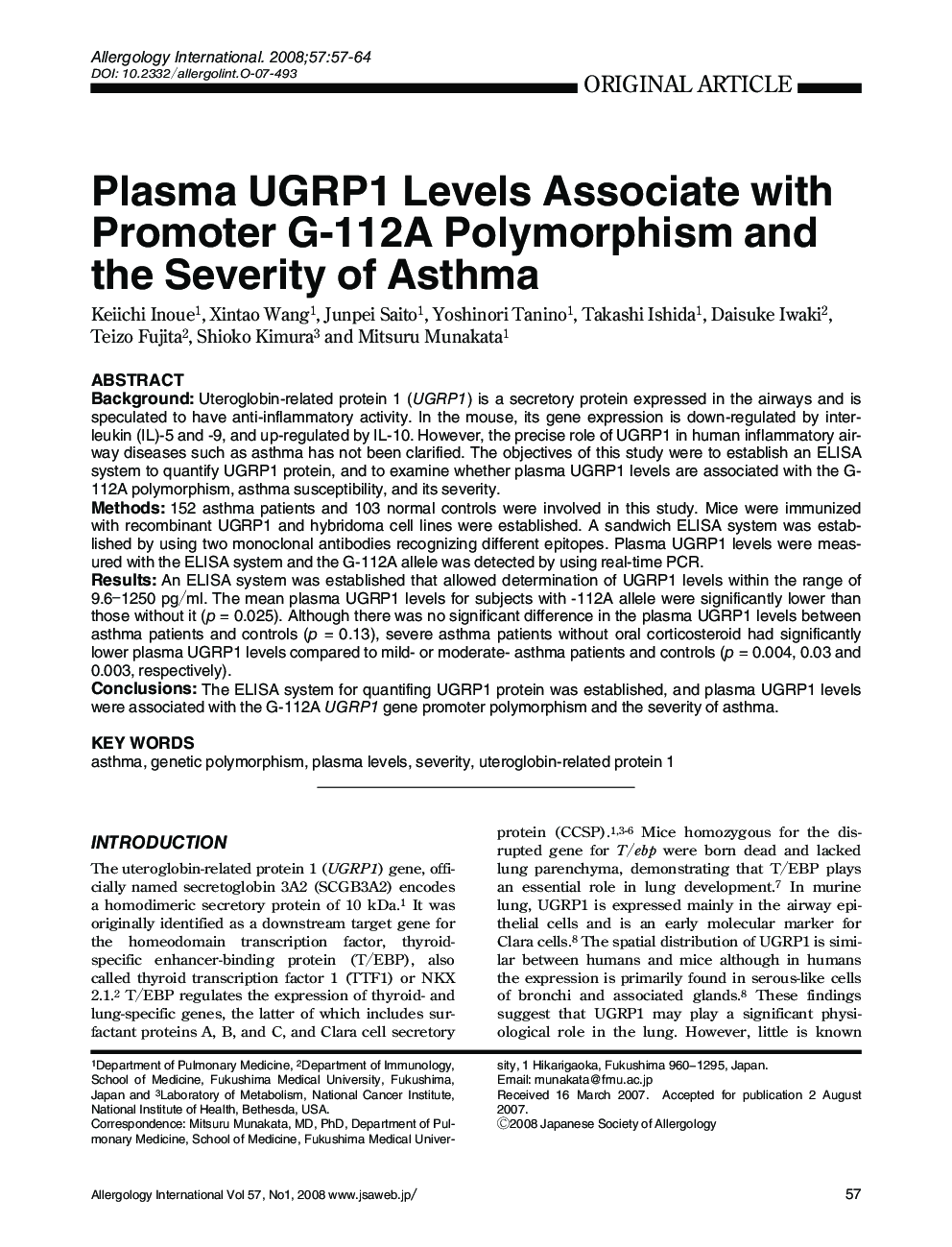| Article ID | Journal | Published Year | Pages | File Type |
|---|---|---|---|---|
| 3341132 | Allergology International | 2008 | 8 Pages |
ABSTRACTBackgroundUteroglobin-related protein 1 (UGRP1) is a secretory protein expressed in the airways and is speculated to have anti-inflammatory activity. In the mouse, its gene expression is down-regulated by inter-leukin (IL)-5 and -9, and up-regulated by IL-10. However, the precise role of UGRP1 in human inflammatory airway diseases such as asthma has not been clarified. The objectives of this study were to establish an ELISA system to quantify UGRP1 protein, and to examine whether plasma UGRP1 levels are associated with the G-112A polymorphism, asthma susceptibility, and its severity.Methods152 asthma patients and 103 normal controls were involved in this study. Mice were immunized with recombinant UGRP1 and hybridoma cell lines were established. A sandwich ELISA system was established by using two monoclonal antibodies recognizing different epitopes. Plasma UGRP1 levels were measured with the ELISA system and the G-112A allele was detected by using real-time PCR.ResultsAn ELISA system was established that allowed determination of UGRP1 levels within the range of 9.6–1250 pg/ml. The mean plasma UGRP1 levels for subjects with -112A allele were significantly lower than those without it (p = 0.025). Although there was no significant difference in the plasma UGRP1 levels between asthma patients and controls (p = 0.13), severe asthma patients without oral corticosteroid had significantly lower plasma UGRP1 levels compared to mild- or moderate-asthma patients and controls (p = 0.004, 0.03 and 0.003, respectively).ConclusionsThe ELISA system for quantifing UGRP1 protein was established, and plasma UGRP1 levels were associated with the G-112A UGRP1 gene promoter polymorphism and the severity of asthma.
